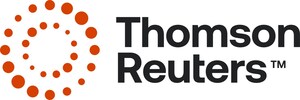Thomson Reuters Report Finds that Investment in Scientific Research, Innovation and Education Close Gap between "BRICK" and G7 Nations
- China and South Korea lead BRICKs in scientific output and patent activity
PHILADELPHIA, Feb. 20, 2013 /PRNewswire/ -- China and South Korea outpace the rest of the BRICK nations in key innovation metrics, according to new research published today by the Intellectual Property & Science business of Thomson Reuters, the world's leading provider of intelligent information for businesses and professionals. The report, "Building Bricks: Exploring the Global Research Impact of Brazil, Russia, India, China and South Korea," tracks global research publications, R&D spend and patent filings over a 10-year period to gauge benchmarks of economic innovation in the BRICK countries: Brazil, Russia, India, China, and South Korea.
(Photo: http://photos.prnewswire.com/prnh/20130220/NY63013-INFO )
The Thomson Reuters study finds that China and South Korea have made larger investments, produced more published research and filed a greater number of patent applications over the past decade than the rest of the group. The strong culture of intellectual property protection and broad-based economic growth in these nations has resulted in more literature citations, on par with some European Union countries. The research also unveiled that each BRICK nation has its own, unique profile. For example, while South Korea is prominent in materials and computer science, Brazil's focus is on agriculture, plant and animal sciences.
Following are some key observations in the report:
- China's and South Korea's R&D Investments Soar: Industrial confidence, as measured by the total percentage of business spending on R&D, in China and South Korea has reached new highs. Between 2000 and 2010, China saw its total business expenditure on R&D grow from 59.96% of gross national expenditure on R&D to 74.45%. South Korea had an even higher level of business investment in R&D, reaching 74.8% of gross national R&D expenditure by 2010.
- China, South Korea Contribute to Global Patent Surge: In 2010, China and South Korea accounted for 84 percent of all BRICK patent filings, helping to drive overall growth of 14.9 percent in patent filings worldwide over the five years between 2006 and 2010. Not only did China file the most patents globally (526,412), but it has shown double digit year-on-year growth since 2009, ultimately reflecting six times as many patents as it filed a decade ago.
- BRICKs Increase Scientific Research: In 2000, China produced roughly 25,000 research papers per year. In 2011, its output exceeded 150,000: a 600 percent increase. With this increase comes high academic value as well. In 2010, China filed over 1,000 papers that were cited in the top one percent for their subject.
- Russia Excels in Physical Sciences: Scientific literature output in Russia is most active in the fields of physics, space science and geosciences, with physics leading in the area of the most citations to scientific literature as well. In terms of patent innovation, Russia is most active in the field of nucleonics, a reflection of its dependence on nuclear energy.
- India Leads in Pharmaceutical Innovation; Brazil in Petroleum and Agriculture Chemicals: Of all the BRICK nations, India is by far the leader in terms of pharmaceutical patent activity, with approximately twice as much activity as the next closest BRICK country, Russia. Brazil is most active in petroleum-related and agricultural chemical patents, outpacing all other BRICK nations in these areas.
"With this report, we showcase quantitative benchmarks for measuring research output with a focus on BRICK nations," said Jonathan Adams, director, Research Evaluation for the Scientific & Scholarly Research business of Thomson Reuters and one of the authors of the report. "By examining R&D expenditures, human capital and the resulting research output and impact, we are able to evaluate and share critical science statistics and trend data, to better understand emerging regions and how they compare globally."
Data for this report were compiled using Thomson Reuters Web of Knowledge and Derwent World Patents Index.
Access the full report, "Building Bricks: Exploring the Global Research Impact of Brazil, Russia, India, China and South Korea."
About Thomson Reuters
Thomson Reuters is the world's leading source of intelligent information for businesses and professionals. We combine industry expertise with innovative technology to deliver critical information to leading decision makers in the financial and risk, legal, tax and accounting, intellectual property and science and media markets, powered by the world's most trusted news organization. With headquarters in New York and major operations in London and Eagan, Minnesota, Thomson Reuters employs approximately 60,000 people and operates in over 100 countries. For more information, go to www.thomsonreuters.com.



Share this article